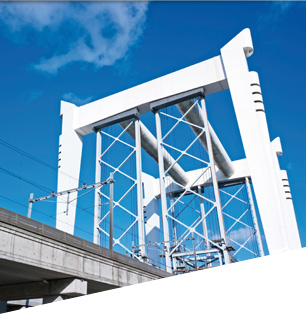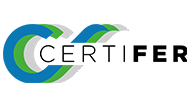Actividades
Certificación
We carry out diverse certification missions, on both technical products and management systems.
Certification according to the Railway Interoperability Directive:
- Assessment of conformity or suitability for use of interoperability constituents and "EC" verification procedures for trans-European conventional rail subsystems in the framework of European Directive 2008/57/EC.
- Assessment of conformity of rail system constituents and subsystems with National Technical Rules in the absence of Technical Specifications for Interoperability or in the case of derogations from these.
Certification according to the Railway Safety Directive:
- The certification (required or voluntary) of the maintenance management system of entities in charge of maintenance in accordance with the regulation (EU) 2019/779 (ECM) as well as the certification of the maintenance workshops. For certification of the maintenance workshops of freight wagons, the possibility is offered to combine the ECMF IV audit with a VERS evaluation.
Certification of management systems:
- The voluntary certification according to ISO 9001 of the quality management systems of railway related organisations. This certification can be performed combined with the certification of maintenance management systems for freight and passenger vehicles according to the regulation (EU) 2019/779. Certifer Belgorail has requested BELAC to perform the accreditation of the ISO 17021-1 standard for the certification of quality management systems. The accreditation process is ongoing.
The certification process of a management system works according to a 5-stage plan:
- Request for Certification: During this stage, the client describes the exact scope of the desired certification and the context in which the organisation is operating. As a support Certifer Belgorail offers different adapted forms containing the required data to complete. Do not hesitate to contact us to obtain the appropriate form.
- Evaluation and offer: Based on the obtained information we will draft an offer that suits your needs provided the requested certification is part of our scope of services. The offer will contain an evaluation plan informing you of the planning of the evaluation, being the certification audit and the associated surveillances during the certification cycle.
- Audit: The audits will follow a standard process:
- Stage 1: Contains the evaluation of the readiness for certification during the certification audit and a documentary audit or an identification of changes during the subsequent audits. The audit agenda for the Stage 2 audit will be drafted.
Such stage 1 audit will generally be performed in our offices prior to the Stage 2 audit, but in certain situations it may be necessary to organise a visit to the premises of the client. - Stage 2: This is the effective evaluation of the conformity with the requirements of the standard or the directive. This evaluation will always be performed on the premises of the client unless circumstances require remote auditing.
- Stage 1: Contains the evaluation of the readiness for certification during the certification audit and a documentary audit or an identification of changes during the subsequent audits. The audit agenda for the Stage 2 audit will be drafted.
For each part of the audit an audit report will be written.
- Certification decision: Based on the Stage 2 audit report, the objective evidence collected during the audit and the conclusion of the auditor or inspector, the certification committee will take the decision concerning the granting of the certificate for the audited system. The certificate will have a validity as prescribed by the appropriate certification scheme. (This can be 1, 2, 3 or 5 years).
- Surveillance: Depending on the duration of the certification cycle and the requirements of the certification scheme, one or more surveillance audits may be planned and executed. These audits will contain the stages 1 and 2 of the certification audit. Depending on the certification scheme the extent of the stage 1 audit may vary. For large or multisite organisations, a sampling will be applied.
- Renovación del certificado: al final del período de certificación, se realizará una renovación. Para ello se siguen los mismos pasos que para el ciclo de certificación inicial descrito anteriormente. Normalmente, la renovación se inicia 3 meses antes del vencimiento del certificado en vigor, de modo que la decisión de recertificación puede ser tomada por el Comité de Certificación antes del vencimiento del certificado actual. El nuevo certificado entrará en vigor el día siguiente a la fecha de vencimiento del certificado actual y tendrá una duración tal y como se describe en el sistema de certificación aplicable.


 Certifer Belgorail SA
Certifer Belgorail SA +32 2 897 9001
+32 2 897 9001

